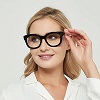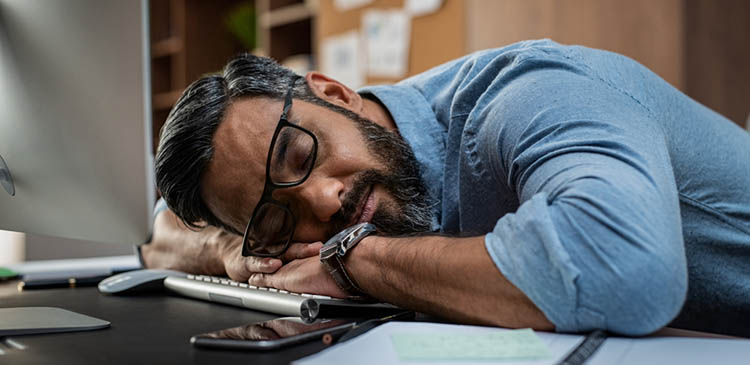What are Sleep Glasses?
Throughout this blog, we frequently emphasize the fact that digital screens can result in digital eye strain as well as the possibility of artificial blue light disrupting your sleep cycle. This last point deserves additional emphasis since it is such a prevalent issue today.
If you are frequently awake at night wondering “why can’t I sleep”, then we might be able to help.
I want you to take a moment to consider this: how late into the evening do you use devices with digital screens, such as smartphones, tablets, or televisions? If you are like most Americans in this country, you use these devices until you turn off the lights and go to sleep. When many people can’t sleep at night, they pick up their phones and wonder why they feel so awake even though they cannot sleep.
You may be experiencing sleep problems due to the artificial blue light emitted by these digital devices. Melatonin production and circadian rhythm have been shown to be disrupted by this type of light, which is used to illuminate digital screens. Therefore, many people have difficulty falling asleep or staying asleep when exposed to this type of light.
However, you do not necessarily need to stop using your devices before bed. In addition to avoiding using digital devices a couple of hours before bed, you may also be able to benefit from using sleep glasses in the evening.
How do Sleep Glasses work?
It is important to note that sleep glasses are a special type of eyeglass that is designed to assist you in winding down before sleep by offering increased protection from artificial blue light. You would wear them before bed, not while you sleep.
As opposed to traditional blue light blocking glasses, sleep glasses offer a higher level of protection against blue light. To measure eye protection at the peak of the blue light spectrum (450 nanometers).
In general, a blue light lens may have a GBLF of between 6 and 65, while a sleep lens may reach up to 98.
Sleep glasses, however, have the explicit objective of blocking out as much light as possible while providing blue light protection without altering your vision. Traditional blue light glasses are intended to provide blue light protection without altering your visual perception. These sunglasses block the majority of artificial blue light as well as dim the light in general. In turn, this increases the production of melatonin, which prepares the wearer for sleep.
How effective are sleep glasses?
However, it is clear that science agrees on one thing: artificial blue light disrupts your sleep cycle. Science returns varied results on this question. Based on that information, it is reasonable to suggest that sleep glasses, which block virtually all artificial blue light, can be very helpful in improving your sleep.
Choosing the Best Protection
Sleep glasses are available from a number of companies. The question is, which brand will provide you with the best protection. It’s important to read reviews and compare prices. Ultimately, the best sleep glasses should provide adequate protection from blue light and feel comfortable on your face. It should also have lenses that are clear, and the frame should be sturdy and comfortable to wear.
















